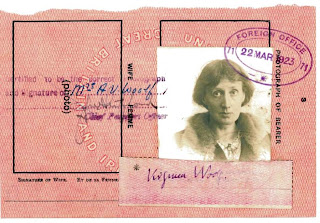
Today I walked a full rectangle around the city. I started uptown, with a walk across Central Park, to the tune of Giorgio Moroda. Then made my way down Madison Avenue, stopping at The Grolier Club for a nose around their exhibition of what you could call primary manuscripts (given that it was so long ago), between Virginia Woolf and her intimate circle. Oddly it aligns them more with how you might look at a late medieval rather than the modern printed page. However, I enjoyed the connection: it released these rather familiar characters from their biographer's shackles...and made me want to learn palaeography. The whole thing was little, but exquisite; constructed almost exclusively of handwritten letters. Bar the odd Juliet Margaret Cameron, or smudgy photocopied face, it was image free. I'm unused to seeing text as the subject rather then aid of an exhibition, and all this attention to script completely doctored the way I gazed at New York for the rest of the day. Looking back, I seem to have taken endless photographs of words.
The best letter in the exhibit is Virginia Stephens and Leonard Woolf's first collaboration. A letter to Lyndon Strachey announcing their engagement. It reads:
"Ha.Ha."
Virginia Stephens,
Leonard Woolf
What's so brilliant isn't just the succinct content, but the utterly bewildering tone of the letter. Almost imposisble to decipher without the handrails of back-history between this circle of friends (which you can and should look up), the letter is nasty, amusing, clever and simple all at once. Entirely personal, yet wholly literary, seeing this letter 'in the flesh' as it were, was an up there experience for the English Literature graduate abroad.
Really I'm glad Virginia Woolf's impeccable literary reputation has taken a slight knock from the recent admonition she was a first class snob. As an icon I find her hard to bare. So it was pleasurable to see an exhibition in which her reputation took second place to the material fact of the work itself. I think Woolf's literature comes out the better for it. All this wannabe romantic clutter about her immortal genius was swept aside. Here, the focus was a dialouge of scripts rather than a cult of personality. Such a hangover from Seventies literary criticism is evangelical in tone, dogmatic in style, and tiresome to hear: Woolf as literary modernism's Madonna is an image some find hard to let go. The constant twists and turns of her public image, at the mercy of academic vouge, should really be a subject of critique in its own right.
No comments:
Post a Comment